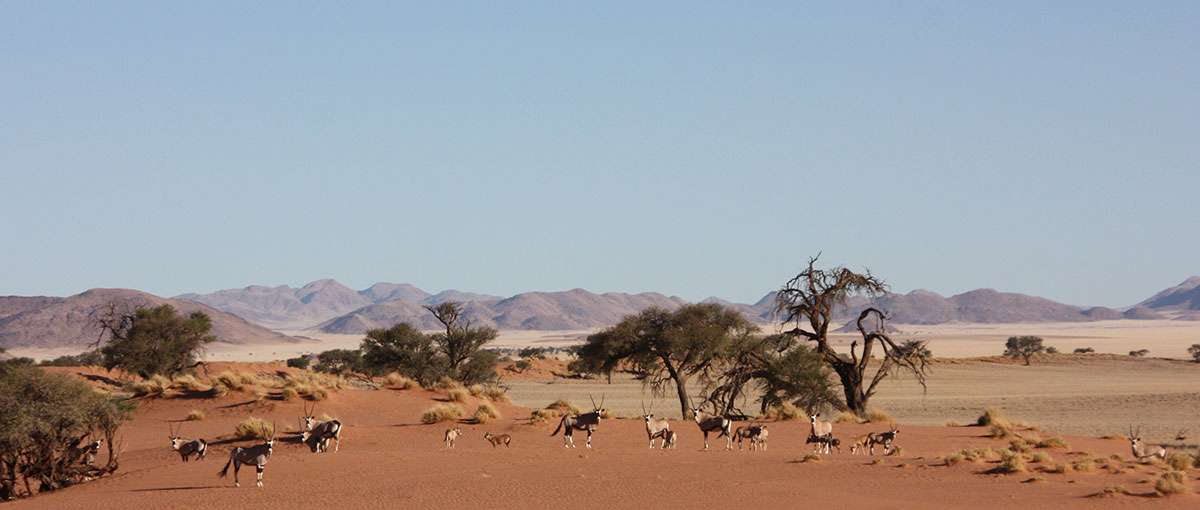Temperatures in Namibia are set to rise much more rapidly than the global average. At 2°C global warming, the temperature in Namibia will increase by 2.7°C on average across the country. As temperatures rise, the threat of water scarcity will increase for Namibia, with knock-on effects for agriculture, health and the economy. This means there is an urgent need to accelerate Namibia’s adaptation responses by:
- Strengthening the ability of communities to respond to projected climate change impacts, through diversifying crops and farming practices, practising soil and water conservation, and training and sharing information.
- Integrating climate resilience into rural development efforts in a way that recognises the varying ways that climate change impacts women, men and different social groups.
- Proactively budgeting for and implementing climate change interventions to enable the country to achieve its international climate change and sustainable development targets - Namibia’s Nationally Determined Contribution under the Paris Agreement and Sustainable Development Goal 13.
- Ensuring national goals follow a climate compatible development pathway, involving all sectors and levels of government.
This video was produced by the University of Namibia and the Desert Research Foundation Namibia, under the CDKN-funded project, 'Strengthening regional climate change governance through integrating gender-responsive climate action in Namibia'. Read more about the project here: https://cdkn.org/regions/namibia/?loclang=en_gb
The link to the video is available here: https://www.youtube.com/watch?v=QseqNRRW8qE&t=70s





































